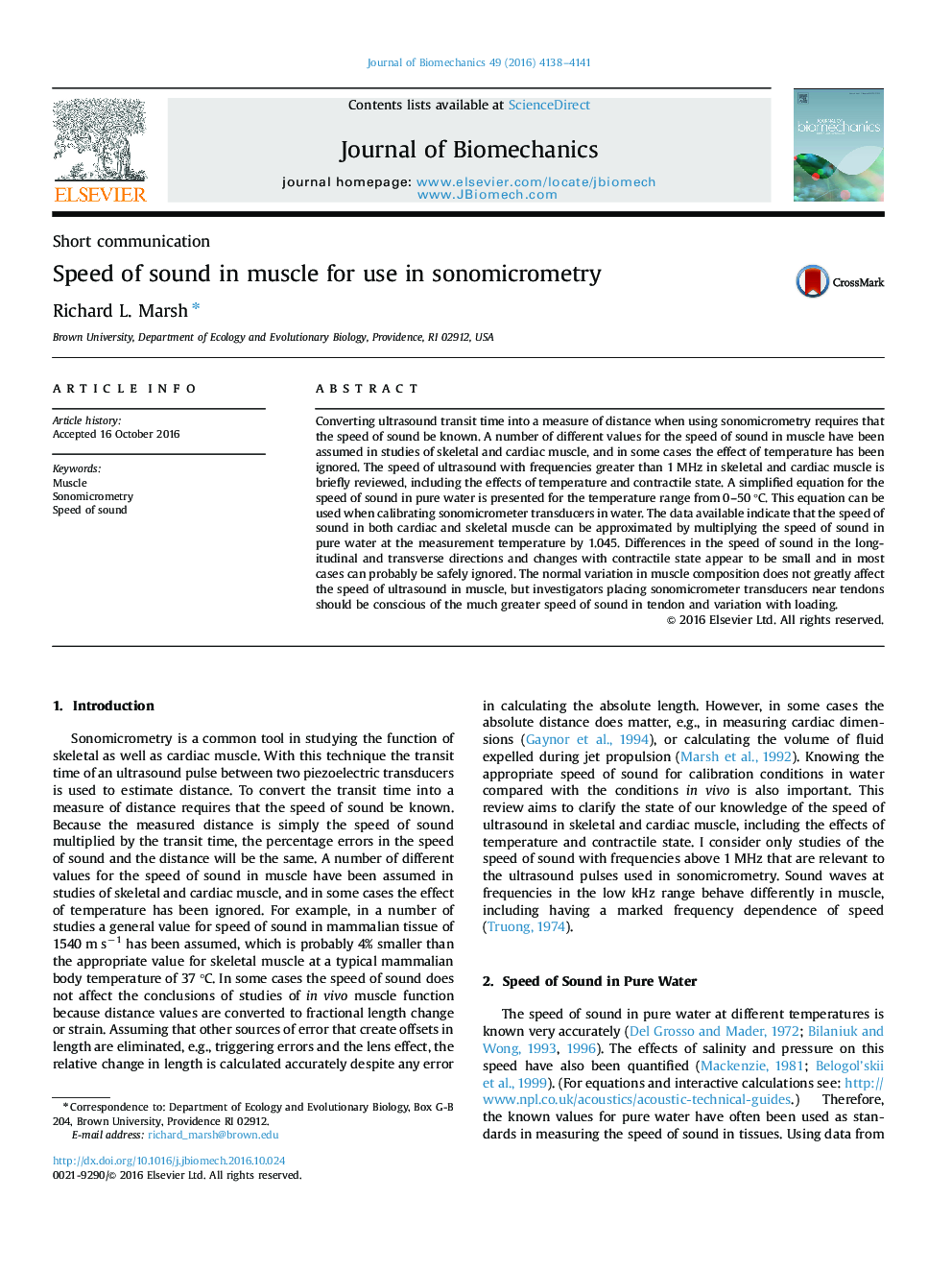| Article ID | Journal | Published Year | Pages | File Type |
|---|---|---|---|---|
| 5032325 | Journal of Biomechanics | 2016 | 4 Pages |
Converting ultrasound transit time into a measure of distance when using sonomicrometry requires that the speed of sound be known. A number of different values for the speed of sound in muscle have been assumed in studies of skeletal and cardiac muscle, and in some cases the effect of temperature has been ignored. The speed of ultrasound with frequencies greater than 1 MHz in skeletal and cardiac muscle is briefly reviewed, including the effects of temperature and contractile state. A simplified equation for the speed of sound in pure water is presented for the temperature range from 0-50 °C. This equation can be used when calibrating sonomicrometer transducers in water. The data available indicate that the speed of sound in both cardiac and skeletal muscle can be approximated by multiplying the speed of sound in pure water at the measurement temperature by 1.045. Differences in the speed of sound in the longitudinal and transverse directions and changes with contractile state appear to be small and in most cases can probably be safely ignored. The normal variation in muscle composition does not greatly affect the speed of ultrasound in muscle, but investigators placing sonomicrometer transducers near tendons should be conscious of the much greater speed of sound in tendon and variation with loading.
